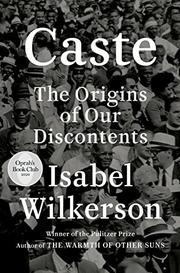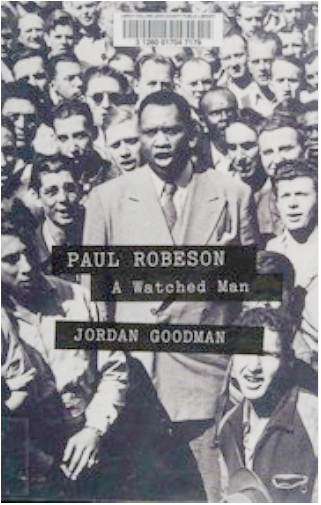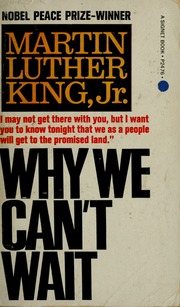Books to Consider 
The Book, Caste, by Isabel Wilkerson was suggested as a subject for study during Black History Month, and indeed it depicts racism and strata of privilege as they have existed in many cultures through the ages and around the world. Whether referred to as royalty, aristocracy, gentry, colonists, the jet set, the one percent, the HNWI (High Net Worth Individuals), they have ever schemed to keep the lower classes in their place and teach them to know their place. Mechanisms have differed with slaves, serfs, tenant farmers, factory workers, coal miners, domestic staff, food service workers kept in their place within the rigid hierarchies. Whether those mechanisms involved citizenship, licenses, degrees, guilds, pedigrees, ranks or other distinctions, they served the same purpose.
There is a well read audiobook of Caste by Isabel Wilkerson in Archive.org (https://archive.org/details/20220515_20220515_0959). Several lectures by and interviews of the author are also available.
One omnipresent mechanism for constraining class advancement has always been education – the absolute lack of education imposed to maintain illiteracy or, most commonly now, the confined and directed education of compulsory schooling by government certificated teachers which has a three fold effect:
- To instill only the basic skills needed by the unskilled worker and indebted consumer.
- To prevent students from acquiring an education on their own.
- To engender a general distaste for and aversion to learning.
Many despair of improving the American education system which does seem to be foundering irretrievably. Some would say however that there is little real effort being made to do so as, it its current state, it is performing just as it was always intended to.
Despite all effort to prevent it, some members of underclasses have overcome barriers and achieved academic success, have climbed the educational mountain. Most however then buy into the existing social structure, fall into line and support it. There are however those who see the caste system for the evil it really is and oppose it. They, the likes of Malcolm X, M.L. King, Paul Robeson, who prevailed despite the hurdles placed in their way, are the ones who are most feared by the upper classes and the ones who have been made to suffer most. They then face the focused ire of the system and must be quashed.
 Another book we could consider for black history month is Paul Robeson, a Watched Man by Jordan Goodman. It concerns the governmental persecution of Robeson, a genius and polymath of the 20th century who championed lower classes and indigenous peoples around the world. Paul Robeson distinguished himself in many different fields. He became a world class athlete despite being maimed and persecuted on the field, he was valedictorian, obtained a law degree, wowed the world as a Shakespearean actor, spoke a dozen languages and became world renowned for his singing voice on stage and screen. However, he took the side of the underdog, championing the black in America and Africa, the Maori of New Zealand, the Aboriginal of Australia, the coal miners of Wales – the underclasses around the world – and endorsed peaceful coexistence with socialism and communism. As a result he was blacklisted, poisoned, stifled and marginalized through the height of this career.
Another book we could consider for black history month is Paul Robeson, a Watched Man by Jordan Goodman. It concerns the governmental persecution of Robeson, a genius and polymath of the 20th century who championed lower classes and indigenous peoples around the world. Paul Robeson distinguished himself in many different fields. He became a world class athlete despite being maimed and persecuted on the field, he was valedictorian, obtained a law degree, wowed the world as a Shakespearean actor, spoke a dozen languages and became world renowned for his singing voice on stage and screen. However, he took the side of the underdog, championing the black in America and Africa, the Maori of New Zealand, the Aboriginal of Australia, the coal miners of Wales – the underclasses around the world – and endorsed peaceful coexistence with socialism and communism. As a result he was blacklisted, poisoned, stifled and marginalized through the height of this career.
 Another book worth considering is Why We Can’t Wait (https://archive.org/details/whywecantwait00king) by Martin Luther King. King knew he would not survive to see the success of the movement he was creating but chose to forge ahead nonetheless, promoting the civil rights movement of the 1960s which did frighten the proponents of the caste system and briefly showed the world how democratic reform could take place and could even threaten to damage age old caste structures. That democracy could actually have such a profound effect was unheard of and inspired a terrible backlash. Dubbed the “Crisis of Democracy,” steps were taken to prevent it from surging again and they have largely been successful.
Another book worth considering is Why We Can’t Wait (https://archive.org/details/whywecantwait00king) by Martin Luther King. King knew he would not survive to see the success of the movement he was creating but chose to forge ahead nonetheless, promoting the civil rights movement of the 1960s which did frighten the proponents of the caste system and briefly showed the world how democratic reform could take place and could even threaten to damage age old caste structures. That democracy could actually have such a profound effect was unheard of and inspired a terrible backlash. Dubbed the “Crisis of Democracy,” steps were taken to prevent it from surging again and they have largely been successful.
The rebound against the Crisis of Democracy by the Trilateral Commission and others, among other things, effectively enchained the educated lower classes in bonds of educational debt to hamper their championing of further democratic causes.
